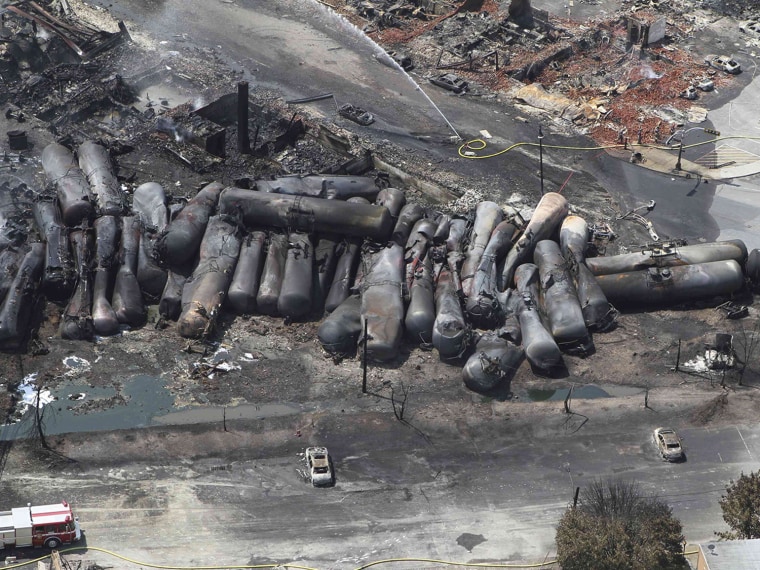Acting in the wake of the rail disaster that killed more than 40 people in Quebec last month, U.S. railway safety officials issued an emergency order late Friday toughening standards for securing unattended trains carrying hazardous materials.
The order, which is effective immediately, forbids railroads from leaving such trains unattended on mainline tracks without a detailed emergency response plan. It also orders railroads to inspect and certify the safety of hand brakes and emergency response equipment on those trains.
Joseph Szabo, head of the Federal Railroad Administration, wrote that the new rules are a direct response to the disaster early July 6 when a 73-car oil train derailed and exploded in the center of Lac-Mégantic in Quebec. At least 42 people were confirmed killed in the explosions and resulting fire, which burned for days.
The train was operated by a U.S.-based railroad, the Montreal, Maine and Atlantic Railway. Canadian transportation safety investigators are looking specifically at the train's braking systems and the procedures followed by the engineer — the lone crew member — who parked on the main line, shut down four of the five locomotives and then left the train unattended.
In its own advisory letter last month, the Transportation Safety Board of Canada said it had determined that the railroad's "operating plan" was to leave the train on the main track, "unattended, with an unlocked locomotive cab, parked alongside a public highway where it was accessible to the general public, with no additional protection."
The FRA has scheduled an emergency meeting of its Railroad Safety Advisory Committee to consider "what additional safety measures may be required," it said.
In a statement accompanying the order Friday, the U.S. Transportation Department, which oversees the FRA, said that while 2012 was "the safest year in American rail history," it was always "looking hard at the current rail operating practices for hazardous materials to ensure the public's safety."
Watch US News videos on NBCNews.com
Related:
